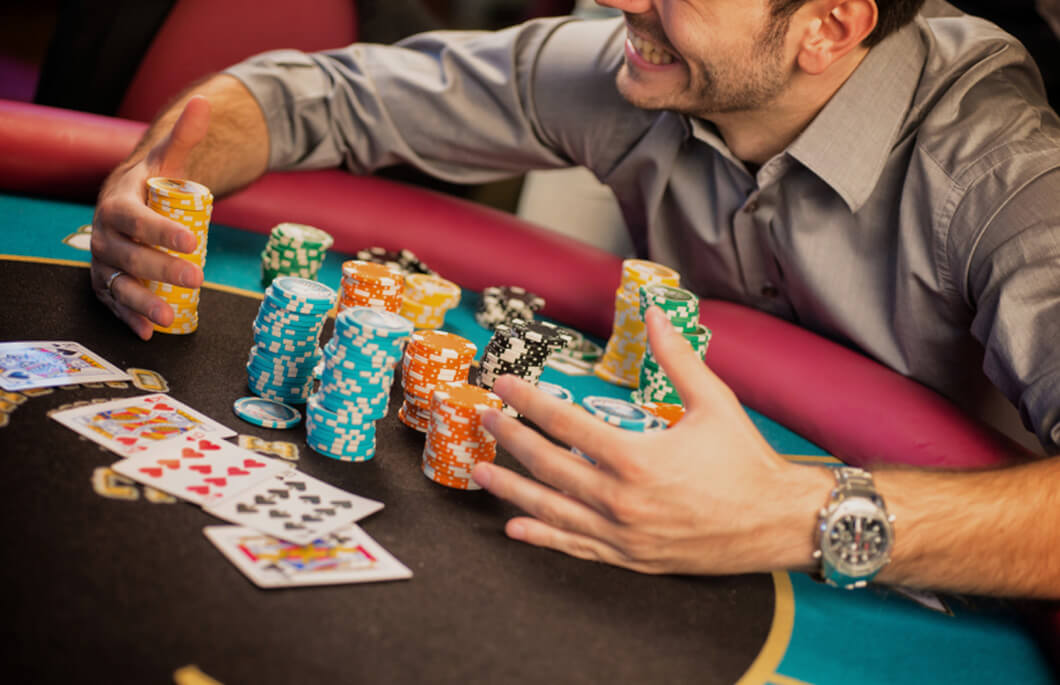
Poker Is All About The Patience Level Of The Players
Poker is a game of patience and strategy. Even though most people understand the basics, they don’t know how to put them into practice in their games. Here are seven quick poker tips that will help you improve your game.
1) Start With A Smaller Bet Each Hand
When you play with real money, it’s important to have a consistent betting pattern even if you’re playing online or live. It can be tempting to bet big every time but you’ll lose money faster than you win if you do. If you’ve been losing all day long, try reducing your bets by one half starting from the next hand. This is a good way to get back on track without upsetting your bankroll.
2) Play Only The Hands You Can Win
If you keep getting beat at poker, there must be something wrong with your skills or strategy. The reason why you’re losing so much money could very well be that you’re not playing against opponents who are also terrible! Try to find a new opponent who is better than you and focus on improving your game against this person.
3) Take Care Of Your Bankroll
It’s easy to get caught up in the excitement of winning and end up blowing your hard-earned cash. However, it’s important to remember that you need to take care of your bankroll while you’re playing. Keep an eye on your money and only bet what you can afford to lose. Remember that it takes a lot of luck to be successful at poker. You won’t make any money unless you have very strong cards or very poor opponents.
4) Learn To Read Players Well
Poker players come in different varieties. Some are more aggressive, some are less, some bluff more than others and some are just plain crazy. Read these types of players to learn what they like to do and adjust your play accordingly. For example, if someone always plays tight, you may want to change your style to match theirs.
5) Practice And Analyze Your Games
You should spend a little bit of time every night analyzing your game. Look for patterns in your wins and losses. Are you making more small bets than you used to? Do you tend to fold too often when you’re behind? These are signs that you need to work on your game. Find ways to fix whatever problems you think are causing those patterns and start winning again.
6) Set Realistic Expectations
Even if you’re a professional card counter, you still have to set realistic expectations about your own abilities. Most pros can only count cards for about 20 minutes before they get tired out. Don’t expect to play all night!

7) Be Prepared For Bad Days
Sometimes poker is going to be really bad. There’s no way around it. When you’re down, it’s best to make sure that you don’t waste any time. Stop playing and go relax until things pick up again. After you’ve gotten rid of the bad feelings, then start thinking about how you can get back on top again.
These tips should help you improve your poker game. As you become more experienced, you’ll find that these strategies will apply to other games as well. Poker is just one of many games where you need to use your head and your skills to succeed.
Playing online poker game on togel taiwan hari ini is choice of both the beginner and the expert players. They are in general making a good sum of money that will give returns. The main motive of the people is to reach the goals on time. A person should try to reach the option that will give them the favorable returns.
Readers Digest: What Is A “Cookie” In Online Poker?
What Is A “Cookie”?
A cookie is a short string of text which contains information about your web browser and the site you were visiting. Cookies are stored locally on your computer. They usually contain a unique ID number which identifies your computer and helps to keep track of your preferences between sessions.
Cookies can be used for several purposes, including keeping track of your username/password combination, remembering your search criteria, tracking shopping carts and remembering how far along you are in a multi-step form.
How Does A Cookie Affect My Poker Game?
Cookies affect your online poker game in two ways. First, they can tell websites whether you are logged in or not. Second, they can allow websites to store persistent data (such as search preferences) without requiring users to reenter sensitive information each time they visit the site.

In addition to cookies, another mechanism to track user behavior is called web server logs. Web server logs record the IP address, date, time and page requested by each visitor. While the amount of data collected by web server logs is large compared to that recorded by cookies, it does not include personal information such as name, e-mail address or credit card numbers.
The Bottom Line
Your web browser sends a cookie to the website whenever you visit it. This cookie contains information about your computer, such as your operating system and version of Internet Explorer. The website uses this information to identify you and customize its content based on your previous visits.
For example, if you enter your email address and password during checkout on a particular retailer’s website, the retailer stores this information in a cookie. When you return to that site later, the retailer knows who you are and can verify your identity quickly.
The cookie also tells the website which pages you have visited during your last session – allowing it to display personalized content to you during future visits.
While the privacy implications of cookies aren’t clear-cut, most experts recommend using them rather than relying on usernames and passwords.
To learn more about how cookies are used, visit www.aboutcookies.org.
Do We Need To Worry About Cookies?
No. All major browsers support the standard HTTP protocol that allows websites to send information to your computer. Because the information sent via this protocol is encrypted, only the website sending the data can read it.
Cookies cannot access confidential information stored on your computer. If you choose not to accept cookies, some websites may not function properly.











